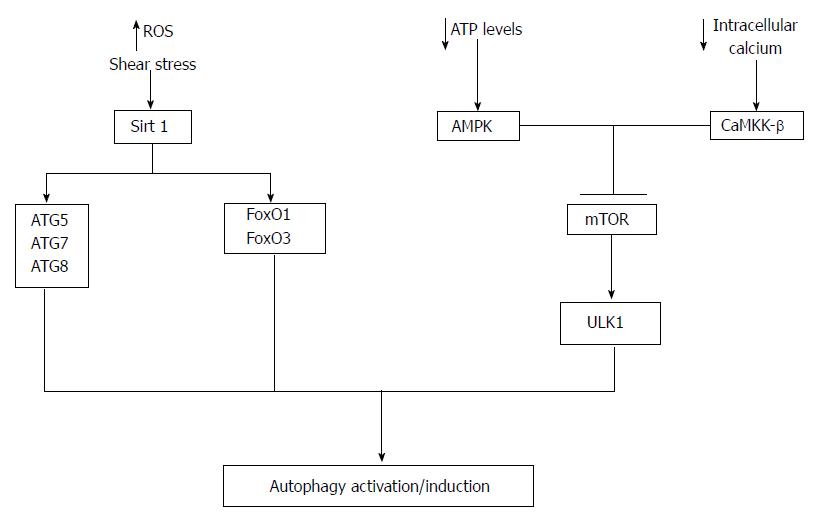Copyright
©The Author(s) 2017.
World J Gastroenterol. Dec 28, 2017; 23(48): 8443-8451
Published online Dec 28, 2017. doi: 10.3748/wjg.v23.i48.8443
Published online Dec 28, 2017. doi: 10.3748/wjg.v23.i48.8443
Figure 2 Autophagy activation in endothelial cells.
A number of mechanisms potentially regulate autophagy activation in endothelial cells. A decrease in cellular ATP or reduction in growth factors availability leads to the activation of AMP-activated protein kinase (AMPK). Once activated AMPK can inhibit mTOR leading to the activation of ULK1 and hence autophagy activation. In addition decreases in intracellular calcium can activate CaMKK-β leading to mTOR inhibition and autophagy activation. Moreover, Sirt1 can activate autophagy via deacetylation of ATG5, ATG7, ATG8 and increased transcription of FoxO1 and FoxO3 that then regulate the expression ATGs via deacetylation of Akt. Reactive oxygen species (ROS) and shear stress are important regulators of Sirt1 activity.
- Citation: Boteon YL, Laing R, Mergental H, Reynolds GM, Mirza DF, Afford SC, Bhogal RH. Mechanisms of autophagy activation in endothelial cell and their targeting during normothermic machine liver perfusion. World J Gastroenterol 2017; 23(48): 8443-8451
- URL: https://www.wjgnet.com/1007-9327/full/v23/i48/8443.htm
- DOI: https://dx.doi.org/10.3748/wjg.v23.i48.8443









